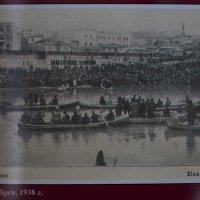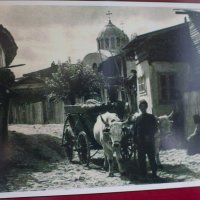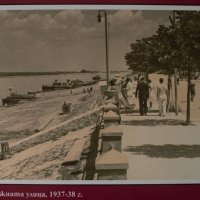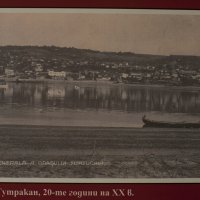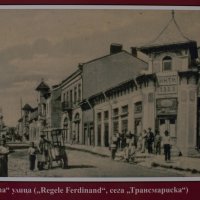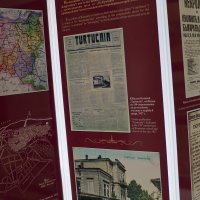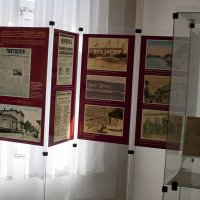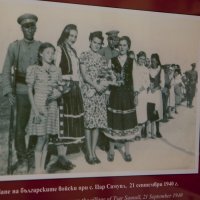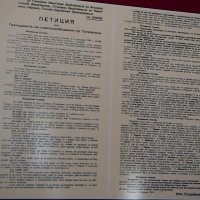History
Exhibits
History
Roman colonists establish Transmariska in I c. – an important military point for defense of lower Denube roman border. In III c. roman imperor Deokletian visits the city and joins it to a large construction programme. Evidence of this event is the emperor sign from 298-299. The fortress is one of the four biggest military center at the border of Low Mizia and in V–VІ c. Transmarizka is a center of Episcopal.
Buslgarian settlement Tutrakan arises at the times of the beginning of Bulgarian country in VIIc. The city name comes from old-bulgarian military title “tamantarkan” and in translation from Arabic means “the tarkan city, who gusrds and protects”.
From the beginning of VІІ till the end of ІХ the settlement is a center of an administrative-political region of Bulgaria. We find proofs for the great importance of the city by the role it held in the Bulgarian-Majar- Byzantium Wars in 894/895. Tsar Simeon was taken under siege by the Magyar cavalry and the Byzantine fleet. Bulgarian king gains a great victoy at the diplomatic negotiations. Later city was subjected to devastating invasions of nomadic tribes.
Arabian geographer Idrisi described the castle as a developed agriculture center. At the end of ХІVc. the city is wihin Tarnovo kingdom. We find the name Tutrakan in documents and information about the castle we find in written sourses from Otoman Empire.
From the beginning of XVIII c. Russia developed an active politics with Otoman Empire. The main military operations take place in Dobruja. In 1773 gen. Al. V.Suvorov conquered Tutrakan twice. The fortress was destroyed in a Russian-Turkish War.
„Bulgarian- Wallach society in Tutrakan“ has been established in 1861 as a result of a contract between Bulgarians and Romanians in the city for establishing a joint municipality on an equal rights.
Tutrakan had its role in the Bulgarian national deed for liberation. The troups of Panaiot Hitov, with their bannerman Vasil Levski, had passed the city in 1867, and the troups of Tanio Stoyanovthe Leader did too in 1876, that is an episode of the April epic. In the last Russian-Turkish war in 1877-1878 many men from Tutrakan volunteered in it.
After Liberation Tutrakan became the biggest fishing center in Lower Denube. City is the main river boat constructor from Middle Europe to the estuary of the river.
At the end of XIX and the beginning of XX Tutrakan is an an agricultural, administrative and cultural center. Russin and Austrian passanger boats stops in the harbour, the river brings the modern European civilization. The city is an administrative center that includes 45 settlements. There are two publishing houses in the beginning of XX c., that publish domestic and world famous authors; there are six schools including one frofessional.
City had developed fast till 1913 when the Bucurest contract puts an end of Second Balkan war. Tutrakan becomes a Romanian territory. Bulgarian participation in the First World War causes the liberation of the sacked territory. Epic battles took place in Tutrakan, turned into impregnable fortress, defended by 40-thousend Romanian army. Bulgarian military army, led by Gen. Panteley Kiselov demonstrate great bravery and heroism.
In a combat on September 5th and 6th 1916 romanian army is defeated and Turtakan liberated. The battle called „Tutrakan epic“ is a turning point in the war, it`s one of the high tide in the Dobruja front. Building of a Memorial complex begins in 1917 where bones of 8 thousand Bulgarian, Romanian and German soldiers are layed. The World War I ends with a new national catastrophe for Bulgaria. Dobrija becomes a Romanian territory once again. The second occupation regime causes the iconomical and cultural labefaction of Tutrakan and the surrounding villages. Local Bulgarian people survive years of cruel assimilation and terror.
A peace contract between Bulgaria and Romania is signed on September 7th 1940, that is precedent in the world history, according to which South Dobruja I returned to Bulgaria via diplomatic approach. According one of the clauses both countries exchange population. 4237 Roman conquerers leave the city and Bulgarians from north Dobruja arrive.

.jpg)
.JPG)
.JPG)
.JPG)
.JPG)
.JPG)
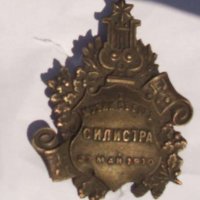
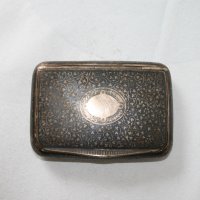
.JPG)


